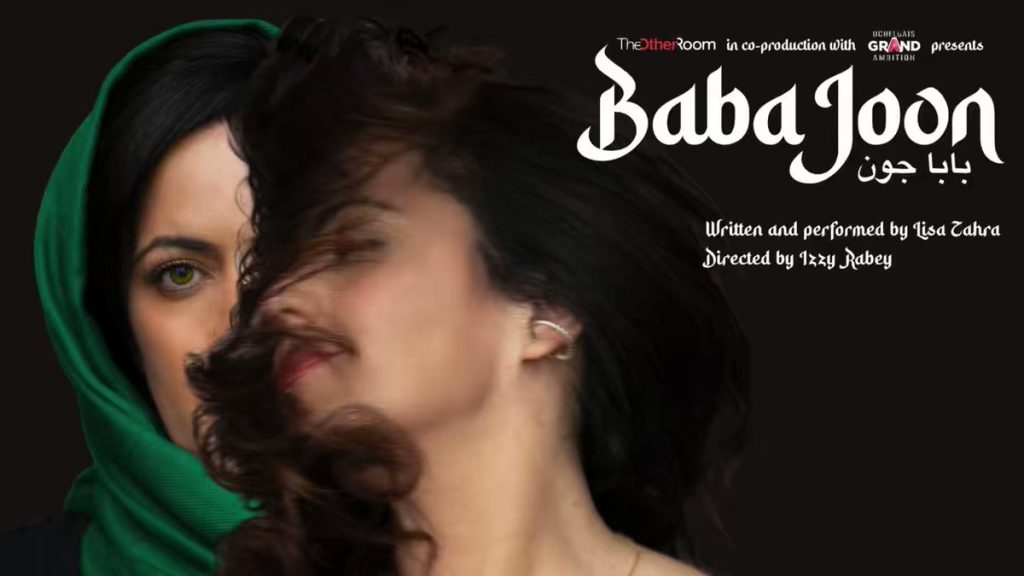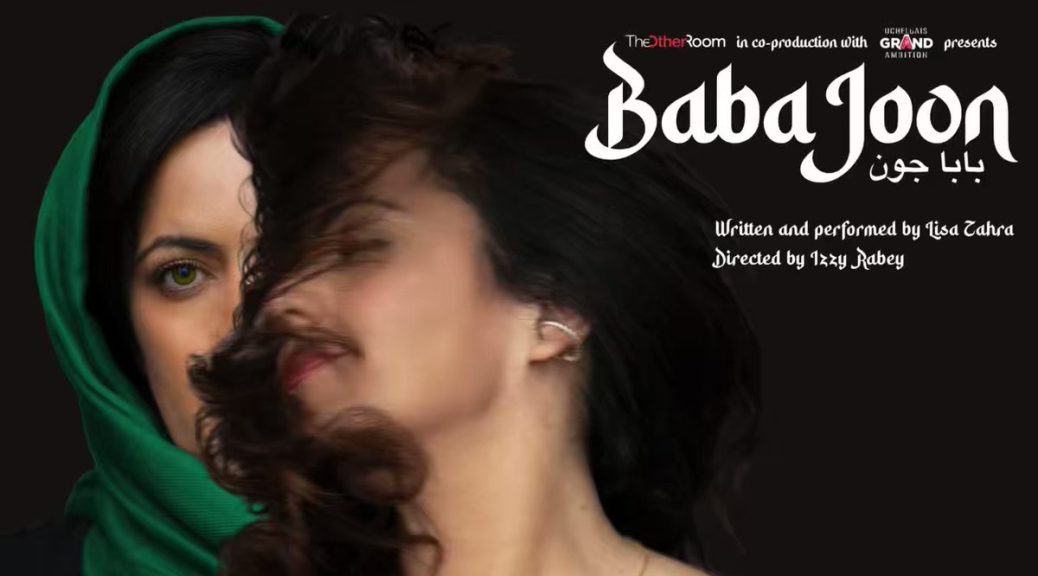
19/10/23
 (4 / 5)
(4 / 5)
“When I first heard someone from Swansea speak, I thought they were singing to me.” That’s a great tagline for a play, when you see it you really want to know more.
Based on her own life, this was written by Lisa Zahra during lockdown, a time many of us spent reflecting on our lives. Born to a Welsh mother and an Iranian father, the Baba Joon (Dear Father) of the title. She grew up in Swansea and found it difficult to relate to her father’s heritage, despite the love she held for him, maybe because she was swamped by British culture.
Her father arrived in the 1970’s and at first he was enamoured by his new country, thinking it “the greatest country in the world”, but he gradually became disillusioned, by Britain, by his success, and perhaps he also felt the Iranian version of ‘hiraeth’. Lisa was torn, always trying to be a good daughter while fitting in with the local community, at one point even using makeup to appear whiter than she was. It is difficult to be a child of two worlds when both compete for your love, and in a culture where even dancing can be a rebellion, it’s hard to know the right steps.
There is poetry here, in the words and the rhythm of the languages, English, Welsh and Farsi. An influence of Dylan Thomas is unsurprising, and Zahra uses it to point out similarities between the Welsh and Iranian cultures, both famous for their poets, and she doesn’t stop there: Family, dance, music, even food, are all used evocatively. It’s been said that ‘food is memories’, because it brings back remembrance of such things as our childhoods.
The staging is like a 1990’s disco, with dry-ice fog, and an old portable TV set that is cleverly used to show switches between scenes in Iran and Wales. Zahra does not just focus on national differences, but also gender ones. Growing up in Wales she experienced racism, sexism and the double standards that come with being a daughter, and in Iran she found it the same, compounded by her being even more of a foreigner as she couldn’t speak the language fluently.
Voiceovers and music are used throughout, which I thought a flaw as I found it off putting sometimes. For me it broke the contact between actress and audience, which is so important in a show like this, and which she establishes so well. This minor quibble aside, I was enthralled by her semi-secret world, growing up in a Swansea where there were always eyes on her, British and Iranian, ready to criticise her every move. No wonder she felt relief at moving to Cardiff to study, finding the simple freedom of getting lost in a crowd. The scenes in the airport in Iran serve to highlight this.
I found the ending of the play annoying at first because there is no real end per se, no conclusion, and then I realised that this is by design. Life is messy, there are rarely easy solutions and not all questions are answered. We never find out why her father left his family, or why he left Britain, but perhaps that’s because she doesn’t know either.
I’ve always thought that good theatre should make you think, make you feel, or both. Lisa Zahra more than accomplishes that here. I was left with so many questions afterwards, and not just the clichéd ones, such as ‘who am I? Why am I here?’, but more difficult ones such as ‘where do I belong?’, or in the case of this play: ‘who are you, Baba?’ Thanks to Izzy Rabey’s excellent direction, the play moves at a good pace, and it sometimes feels like so much is coming at you in a short time, but then life itself is like that. In the end, it seemed to me to be about accepting who you are and being happy with it, and to Hell with anyone who says different. I don’t know about Iran, but that describes Swansea, Wales and I think Lisa herself in a nut-shell

